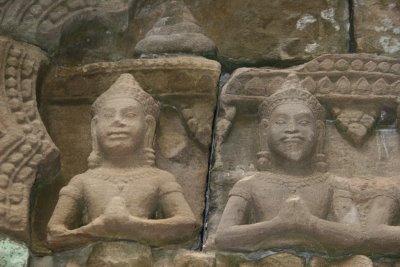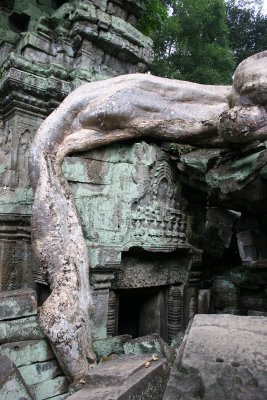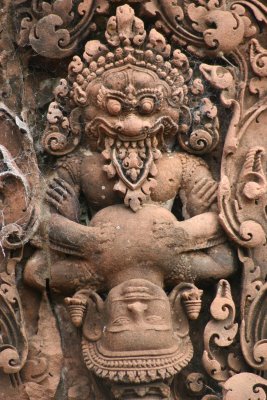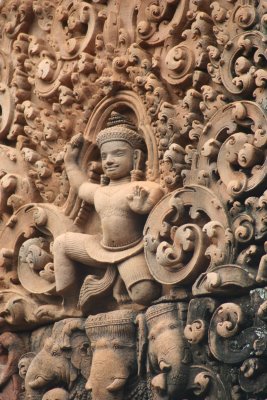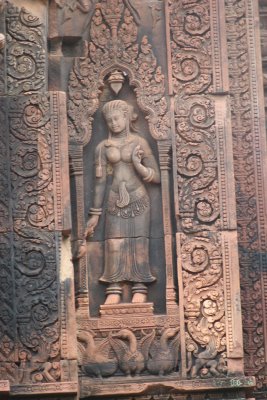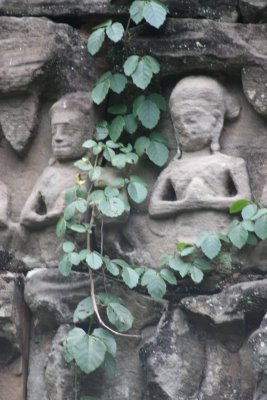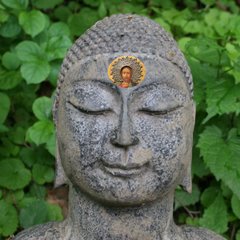
I have not delivered myself sufficiently unto thee, my Lord.
I know not how.
My "theme" for this week involves this prayer, which came to me spontaneously on Tuesday night.
The
matter has become a personal point of work for me in the past two days.
The prayer deserves a great deal of pondering, and perhaps even
repetition, but not from a mechanical state. It arises--must
arise--from a sensation in the bones of the bones.
A realization
that, fundamentally, I do not trust, and that this is the greatest
obstacle between me and an opening to something higher.
The arising of the question points to the intersection between
inner and outer impressions,
between inner and outer sensation, and the value of that intersection.
As can sometimes be the case, an outer shock -- in this case, the loss
of my job and the changing of life circumstances -- has triggered an
upset in the associative center, which insists, even in dreams, on
clinging to a past that has been definitively put aside. It has upset
the inner applecart enough to raise questions that don't come up when
everything is more or less comfortable (even my routine discomforts) and
proceeds according to habit.
The shock has paradoxically created the belief in me that I can--or at least
ought
to-- control what happens, while at the same time amply illustrating
that I, like everyone else on this planet, am firmly in the grip of
forces that lie beyond my control.
Under such circumstances, yes, we all do our best.
But our best is not enough.
I
found myself in our loft explaining that to my daughter last night. We
are in the middle of a major paradigm shift on this planet, not unlike
things that happen during wars. Most of the old rules and habits are
inadequate--even our so-called "leaders" are frightened and baffled,
grasping for understanding in the midst of today's economic and
environmental circumstances.
So we don't know exactly what to do.
The world invents itself in front of us, moment by moment, and we need
to discover a new way.
That's the external condition.
The
inner condition finds itself in the same state. The difference is that
the inner condition, if it becomes sensitive, realizes that we are
perpetually in front of this state. My outer impressions, and that part of me which forms my personality, forget this quite easily.
So
now the inner condition has a possibility of coming into relationship
with the outer condition, where I can perhaps begin to form a deeper
understanding of reciprocity. And now, perhaps, I begin to
see and understand that the forces that guide my inner life need to be trusted much more.
If
I attract something from a higher level through work efforts -- of
course, there are no guarantees, but more does become possible after
years of work -- it offers a stability from the inner point of view that
is not so subject to the law of accident. In the midst of outer
circumstances, which remain bewildering and uncertain, a
trust in the Lord can be formed.
This
idea has been vulgarized to the extent that we even see it on our
currency -- "in God we trust." But we don't trust in God at all. We
just talk about trusting in God. And if there is any "trust" in God, it
is devoted to outward circumstances, where we fervently want to believe
that God will somehow "fix" everything in one way or another.
As
Meister Eckhart points out, "fixing" what is wrong with me may well
require terribly painful outer circumstances. For, after all, what needs
to be "fixed" -- that is, made whole -- is my inner state, that
essential part of myself which I pay so little attention to.
So
there is a need for me to learn to submit. Not in an outer sense,
submitting to the circumstance -- although inner submission does
ultimately create an important relationship there -- but in an inner
sense, where I acknowledge my lack.
This understanding of my lack, which is multifaceted, is expressed in the prayer I opened this essay with, in the sense of
delivery.
It's
traditional, in the Christian religion, to have prayers that ask for
"delivery." We ask God to "deliver" us from sin, from trials, sickness,
and any other adversity, and so on. Until we die, we think the Lord
ought to deliver us from this, that, and the other thing. Then, at that
last moment, we will deliver ourselves on to the Lord in death.
What I lack (among the many things that I lack) is an understanding that
I need to deliver myself unto the Lord at every moment.
This
ordinary self must learn to offer itself up in prayer at all times.
That understanding is closely tied to the understanding of what it means
to have a real attention. And in order to discover what that means, I
must trust in a process -- and in forces -- that are beyond this
ordinary level of understanding.
Yes, this
exact level of understanding -- the one that I am writing this from, and the one that you are reading it in.
That's
where my clever theories breakdown. That's where the paradigms no
longer serve. For what I discover, as I stand in front of this
understanding, and do not offer myself, is that I don't
want to
offer myself. Trusting the unknown is not a quality that can be born
of my rational mind. (Rumi touches on this in some of his poems.) So
different centers have to participate in order for trust to begin to
grow.
This is where I learn the real value of a more three
centered effort. In forming a deeper connection between the intellect
and sensation -- between the body and the mind -- and leaving an opening
where I see my lack, a call is issued to the emotional part to come and
work. So with preparation, these three centers may discover one
another, opening a door that allows the entry of a contrition and a
humility connected to what Mr. Gurdjieff referred to as higher emotional
center.
Well, once again, we have examined some rather delicate
things together here. It's so difficult, to add words to a process that
beggars the words themselves. In moments like this we sometimes turn
to symbols to express the inexpressible.
And so, this poem, which serves as the verbal coda to a
drawing I did many years ago:
The Dream of the FishThe fish begins in silence,
Darkness, depth
With a wish to swim, unknowing, into light
Where dancing, rainbow spattered cells
Reflect a radiance too delicate to measure.
And then to find its wings --
To leave that womb of water --
Into places never seen, or sensed, or felt.
I have not delivered myself sufficiently unto thee, my Lord.
I know not how.
May our hearts be opened, and our prayers be heard.
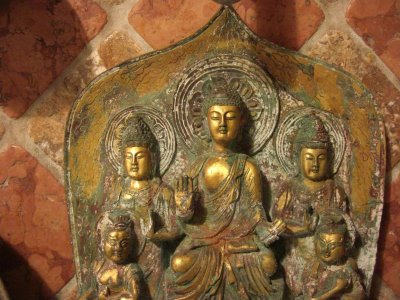 Click here for the audio podcast
Click here for the audio podcast




